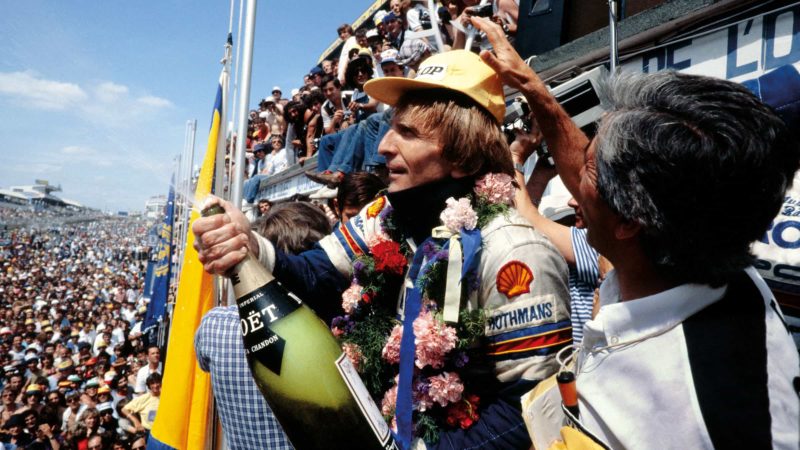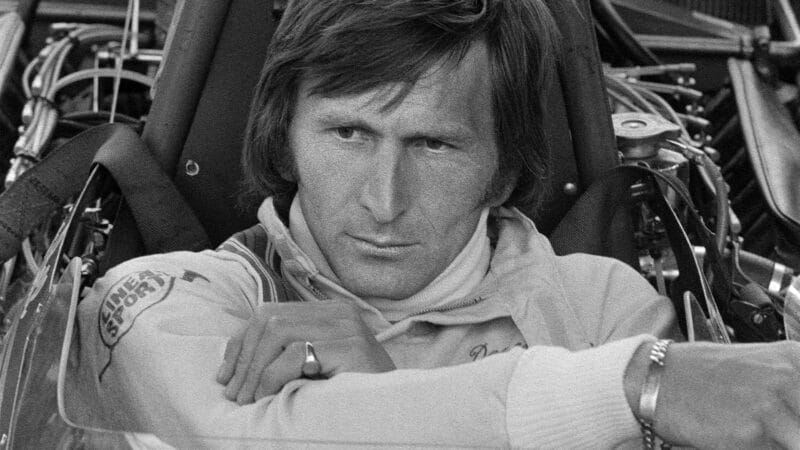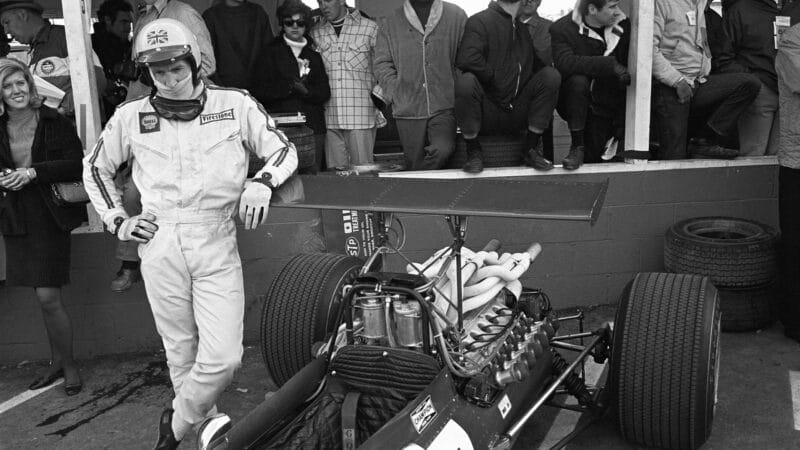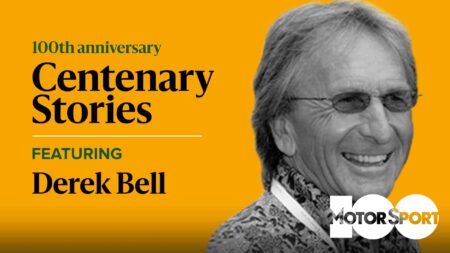“Either I was the only one out there racing or I was the only one they felt they could pick on. But I was quite in demand.”
Ultimately, Bell chose to sign with Ferrari for 1968 after a successful test at Monza. Although he would shine in F2 — securing pole position on debut in the F2 Monza Lotteria and leading at Zandvoort before his gearbox broke — the Briton missed out on a full-time F1 drive after a spell of misfortune: retiring from Oulton Park’s Gold Cup, the Italian GP and the US GP all due to mechanical failures. Enzo later released Bell, who tried his F1 luck with McLaren, Wheatcroft, Surtees and then Tecno. Each venture would prove a disaster, as he scored just a single championship point in 16 entries.
Fortunately, Bell soon turned his attention to sportscar racing where he quickly found his feet: winning at Le Mans with John Wyer in 1975, before claiming further victories 1981, 1982, 1986 and 1987 and wins at Daytona in 1986, 1987 and 1989 — all with Porsche.

Derek Bell enjoyed his best years as part of Porsche’s works Group C effort, scoring three Le Mans wins (here is 1982).
Getty Images
But all the while, the memory of Clark’s death burdened his mind.
“It was a tragedy,” he said. “It’s something that really set me back mentally and I’ve always wondered why I had the mentality to stand people who I knew, liked and almost worshipped, getting hurt or killed and still carrying on.”
“Sometimes when I talk about it, I often remember that I never actually saw anybody dead. Maybe if I’d seen a guy laying over the top of a guard rail with a broken back or something it might have got hold of me and made me think ‘Oh my god that could have been you!’
“But I still never thought about stopping. I was reminded about it on several occasions. Well-wishers and friends and family would say ‘I say old boy, why don’t you take up something a bit more sensible? Why don’t you get a job and try and become a lawyer or a doctor? Do something useful in your life!’ But I was doing what I loved. Wasn’t I lucky? How many of us do what we really love?”



